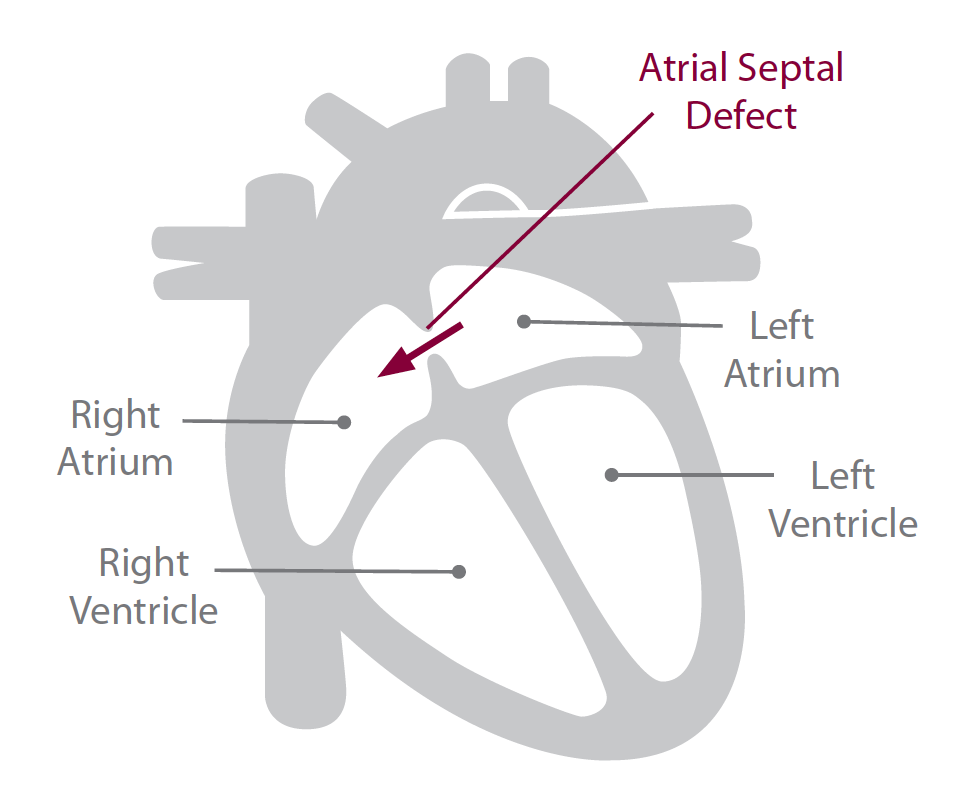Atrial Septal Defect
Trinity Health Michigan provides expert treatment for cardiovascular diseases across West Michigan, including atrial septal defect.
What is Atrial Septal Defect?
Atrial Septal Defect (ASD) is a deficiency of tissue or hole in the part of the septum that separates the atria. This heart defect allows oxygen-rich blood from the left atrium to flow into the right atrium instead of flowing to the left ventricle as it should. Many people who have ASDs have few, if any, symptoms.
An ASD can be small or large. Small ASDs allow only a little blood to leak from one atrium to the other. Some small ASDs don’t affect the way the heart works and don’t require any treatment. Many small ASDs close on their own as the heart grows during childhood.

Medium to large ASDs allow more blood to leak from one atrium to the other; these defects can strain the right side of the heart and they’re less likely to close on their own.
Half of all ASDs close on their own. Those ASDs that remain open can cause strain on the right side of the heart. This can be repaired using a catheter procedure or open heart surgery.
Ostium Secundum Atrial Septal Defect
This is the most common atrial septal defect, affecting over two-thirds of people with atrial septal defects. It is caused when a part of the atrial septum fails to close completely while the heart is developing. This causes an opening to remain in the center of the wall separating the two atria.
Symptoms of ASD
- Decreased exertional capacity
- Dyspnea on exertion
- Exercise intolerance
- Heart arrhythmias
- Heart palpitations
- Stroke
Treatment
- Open heart surgery to close the ASD
- Percutaneous Septal Closure




